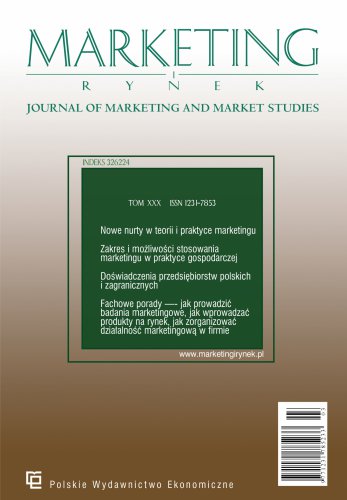This paper aims to determine whether there is an association between gender and mobile shopping buying behavior both during and post-COVID-19 period. Three types of categorical variables were defined: the installation of mobile shopping apps before the pandemic, the use of mobile shopping apps before the pandemic, and the decision to stop using mobile shopping apps after the pandemic. In a pilot study, the population only included Polish respondents. The field survey method was applied to collect the primary data. In April 2021, the survey was launched via social media. Primary data were collected from 102 respondents. The nonparametric statistical method was selected as a suitable analytical technique and the chi-square test of independence was used to test the hypotheses. According to the pilot study, gender does not influence installation of mobile shopping apps before the pandemic, the use of mobile shopping apps before the pandemic, or the intention to stop using mobile shopping apps after the COVID-19 period. The findings are significant for mobile shopping application developers, modern trades, and business decision-makers in the Polish market. Meanwhile, the applied research methodology is most relevant for future similar kinds of research studies.
Celem artykułu jest ustalenie, czy istnieje związek między płcią a zachowaniami związanymi z zakupami mobilnymi podczas COVID-19 i okresie postcovidowym. Zdefiniowano trzy rodzaje zmiennych zależnych: instalacja aplikacji do zakupów mobilnych przed pandemią, korzystanie z aplikacji do zakupów mobilnych przed pandemią oraz pomysł zaprzestania korzystania z aplikacji do zakupów mobilnych po pandemii. Populację w badaniu pilotażowym stanowili polscy respondenci. Badanie ankietowe zostało uruchomione za pośrednictwem mediów społecznościowych w kwietniu 2021 r. Dane pierwotne zostały zebrane od 102 respondentów. Jako technikę analityczną zastosowano nieparametryczną metodę statystyczną, wykorzystując test niezależności chi-kwadrat do sprawdzenia hipotez badawczych. Badanie pilotażowe wykazało, że nie było istotnego związku między płcią a instalowaniem mobilnych aplikacji zakupowych przed pandemią, między płcią a korzystaniem z aplikacji do zakupów mobilnych przed pandemią, oraz między płcią a decyzją o zaprzestaniu korzystania z aplikacji do zakupów mobilnych po pandemii. Wyniki są istotne dla twórców aplikacji do zakupów mobilnych, nowoczesnych branż i decydentów biznesowych na polskim rynku, a zastosowana metodologia badań jest odpowiednia dla prowadzenia analogicznych badań naukowych w przyszłości.
Keywords: COVID-19 pandemic; mobile shopping; gender; Polish respondents; consumer behavior; non-parametric test (pandemia COVID-19; zakupy mobilne; płeć; polscy respondenci; zachowania konsumentów; test nieparametryczny)

